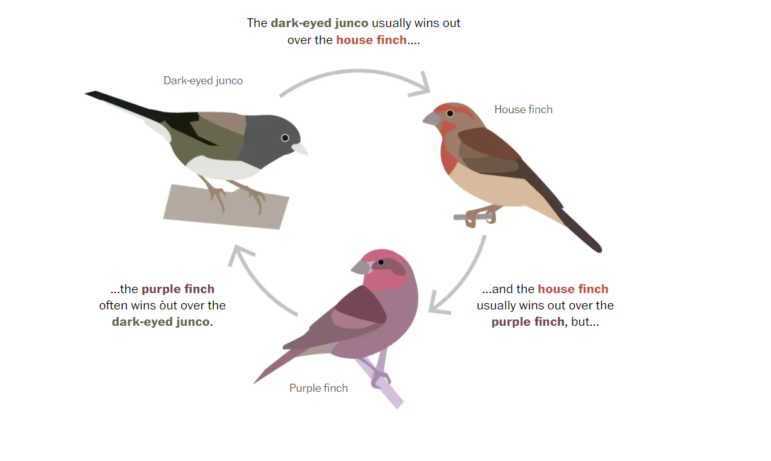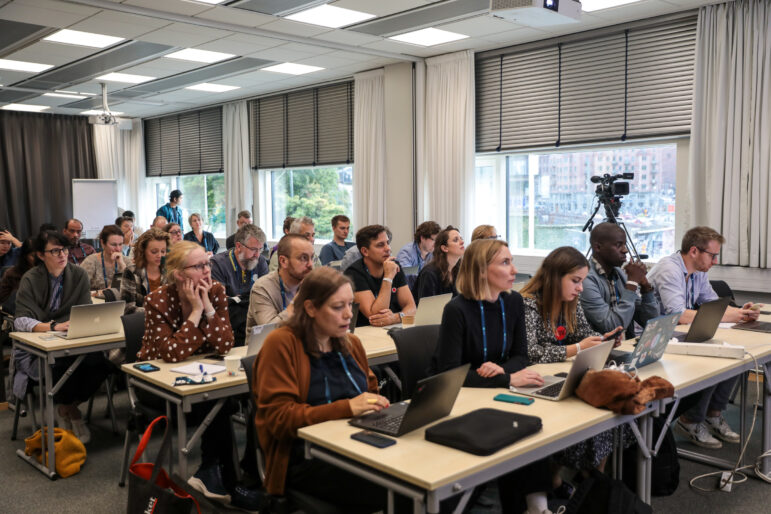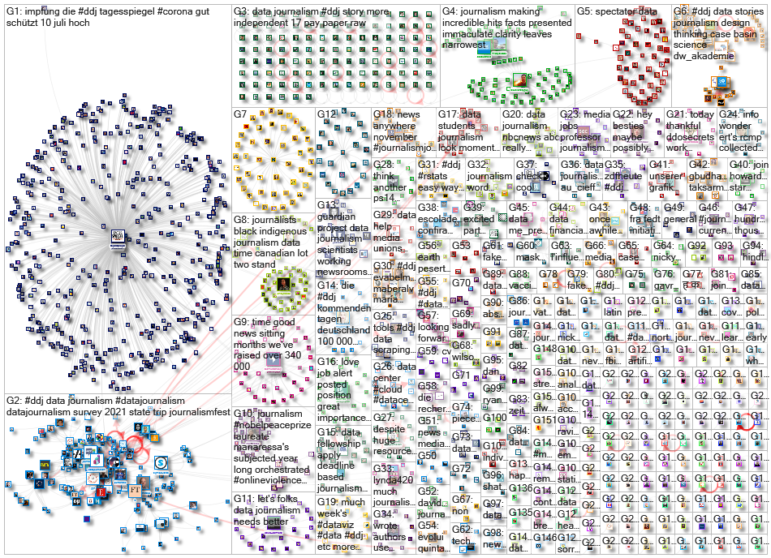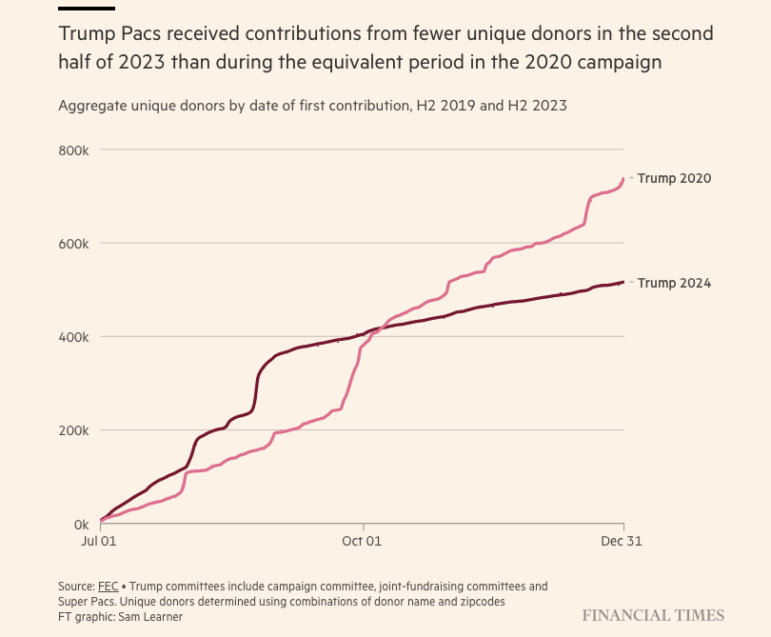

Data Journalism Top 10: Bird Hierarchy, European Trains, Combating Big Tech, Amazon Exports
Read this article in

The Washington Post used data to answer the question: Which birds are the biggest jerks at the feeder? Image: Screenshot
The pandemic has changed the world in many ways. In America, lifestyle shifts set in motion by the COVID-19 outbreak have led people to relocate to other states to start new jobs or work remotely. Many have escaped the big city to find a new home in less populated areas. So, where is the best place to live based on your personality and needs? Our weekly analysis of the most popular data journalism stories on Twitter highlights a New York Times story aiming to answer that question. In this edition, we also feature an examination of the pecking order of birds based on their dominance at the feeder, an investigation into the problems of European rail, and a survey on the state of data journalism.
Bird Power
When it comes to bird feeders, there is a comprehensive, if hidden, hierarchy. The American crow is the most dominant species, according to a study based on a database of almost 100,000 bird interactions. The Washington Post illustrated the pecking order in the bird world in the northeastern part United States, revealing “the subtle rules of a hidden avian social order.”
Germany’s Pandemic Toll
After nearly two years of the pandemic, Germany has now recorded 100,000 coronavirus deaths. The first victims of COVID-19 in the country are considered to be a 78-year-old from Heinsberg and an 89-year-old from Essen, according to a Der Spiegel analysis of how the virus swept through the country. The head of data visualization at Der Spiegel, Matthias Stahl, shared a thread visualizing the data from each death since March 2020.
Fighting Big Tech
Three-and-a-half years after Europe introduced tougher online and data privacy rules, the General Data Protection Regulation (GDPR) is finally starting to have a significant impact. Since May 2018, 880 sanctions have been filed amounting to a total of €1.3 billion ($1.47 billion USD), according to an analysis by El Orden Mundial, a Spanish site.
The Best Places to Live (for You)
Work and quality of life priorities have changed in the US as a result of the pandemic, and many people are looking for a new place to call home. The New York Times created this interactive tool offering data on the best places to live, using reader inputs such as political beliefs, preferred weather, school quality, crime rates, and affordability. According to this tool, the data helps explain why so many people are moving to Texas.
Europe Derailed
The EU dubbed 2021 the European Year of Rail, as officials tried to promote one of the safest and most sustainable forms of travel. The initiative was meant to encourage countries to invest more in railway networks and divert their focus from roads. But a project by Investigate Europe and its media partners found this hasn’t happened. In fact, the outlet claims, the data show that Europe’s railways are in worse condition now than 20 years ago.
Forestry Exports
An exclusive story by Brazil’s investigative nonprofit Agência Pública reveals new information about deforestation in the Amazon. According to the outlet, in the 15 months between February 2020 and May 2021, lumber exports from the Amazon exceeded the previous four years, and included thousands of tons of forest species considered threatened by the Brazilian Forest Service.
Fearmongering in Russia
In Russia, incidents involving migrants often become front page news, and critics say some of these stories are sensationalized and used to generate hostility towards newcomers. Two of Russia’s last independent newsrooms, IStories and Novaya Gazeta, joined forces to analyze popular Telegram channels of bloggers, journalists, state media, and news groups to examine who writes the most about migrants and how their coverage impacts public perception.
The Arab Cup
The World Cup, FIFA’s trademark football (soccer) competition, takes place next year in Qatar. This month, the country is hosting another sporting event, which brings together 16 teams from across the Arab world. The Arab Cup is a prelude to the upcoming global tournament and will mark the inauguration of new stadiums whose construction has been surrounded by a major controversy involving the deaths of migrant workers. To set the stage, Al Jazeera’s graphics team visualized all international soccer games played between countries in the region since 1957.
https://twitter.com/muhhossein/status/1464652096263884800
The State of Data Journalism
What are the biggest challenges facing data journalists? What is the state of data journalism where you are? What do you think about the future of the field? Our friends at DataJournalism.com are conducting a survey to get insights into the state of data-driven reporting and the technology newsrooms are using to produce outstanding projects. Join the survey and contribute with your feedback. By participating, you might win a trip to the 2022 International Journalism Festival in Perugia, Italy.
Sigma Awards
Entries are now open for the 2022 Sigma Awards, a global competition celebrating the best data journalism worldwide. Data reporters and teams can submit their applications by January 7th. Send your best work and compete for the $5,000 cash prizes, which will be split among the creators of the winning projects.
Thanks again to Marc Smith and Harald Meier of Connected Action for gathering the links and graphing them. The Top Ten #ddj list is curated weekly.
 Peter Georgiev is GIJN’s social media and engagement editor. Previously, he was part of NBC News’ investigative unit in New York. He also worked as a correspondent for Bulgarian National Television and his reporting has been published by the Guardian, Deutsche Welle, and other international outlets.
Peter Georgiev is GIJN’s social media and engagement editor. Previously, he was part of NBC News’ investigative unit in New York. He also worked as a correspondent for Bulgarian National Television and his reporting has been published by the Guardian, Deutsche Welle, and other international outlets.









